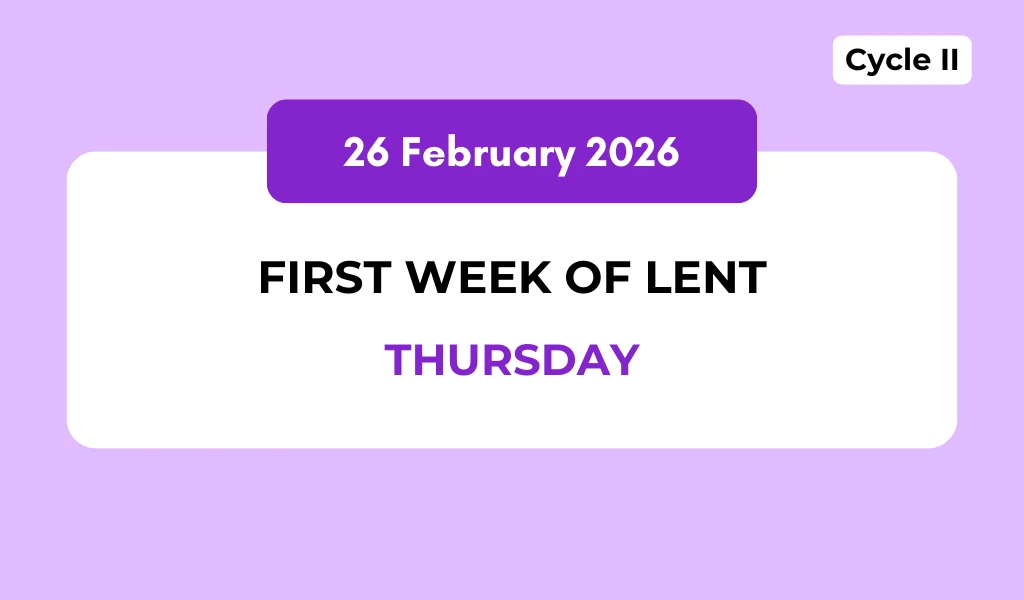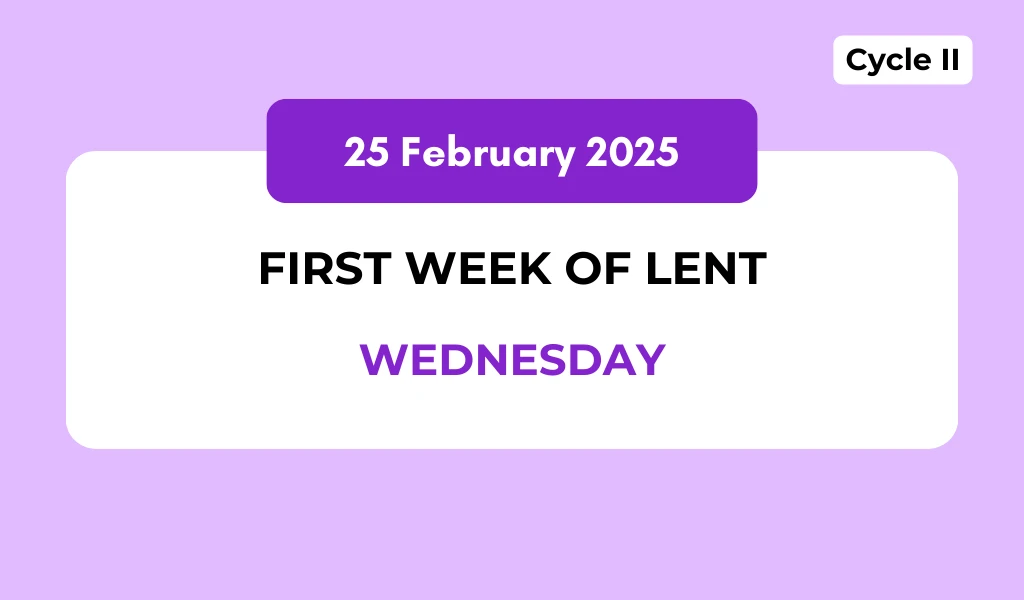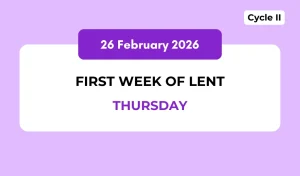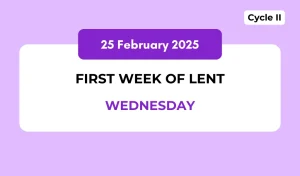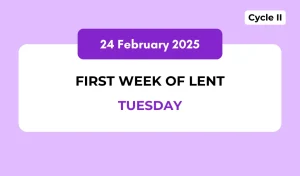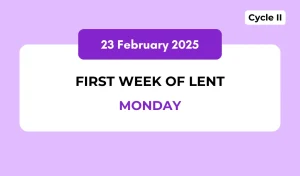Catholic Mass Readings and Reflection September 06, 2025
Saturday – 22nd Week in Ordinary Time
06th September 2025 (Saturday)
Psalter: Week 2
Readings of the Day
First Reading: Colossians 1:21-23
Brethren: You, who once were alienated and hostile in mind, doing evil deeds, he has now reconciled in his body of flesh by his death, in order to present you holy and blameless and above reproach before him, if indeed you continue in the faith, stable and steadfast, not shifting from the hope of the gospel that you heard, which has been proclaimed in all creation under heaven, and of which I, Paul, became a minister.
Psalm 54:3-4, 6 and 8 (R. 6a)
R/. See, I have God for my help.
Gospel Acclamation
V/. Alleluia
R/. Alleluia
V/. I am the way, and the truth, and the life, says the Lord; no one comes to the Father except through me.
R/. Alleluia
Gospel: Luke 6:1-5
On a sabbath, while Jesus was going through the cornfields, his disciples plucked and ate some ears of corn, rubbing them in their hands. But some of the Pharisees said, “Why are you doing what is not lawful to do on the Sabbath?” And Jesus answered them, “Have you not read what David did when he was hungry, he and those who were with him: how he entered the house of God and took and ate the bread of the Presence, which is not lawful for any but the priests to eat, and also gave it to those with him?” And he said to them, “The Son of Man is lord of the Sabbath.”
Daily Gospel Reflection
Saturday – 22nd Week in Ordinary Time
Main Point: Rules and traditions are good because they can restrain deviant tendencies, guard against possible breaches and regulate good behaviour. But one should take care not to overdo them
1. Once again, Jesus gets into a confrontation with the Pharisees. The issue is the Sabbath. Jesus’ disciples plucked some grains from the grain fields and ate them. The Pharisees accuse them of violating the Sabbath rule. They consider even rubbing the grains in the hands equal to harvesting. Jesus defends his disciples by giving the example of David, who, when hungry, ate and also shared the bread of the Presence with his company. But nobody would question it.
2. In this context, Jesus declares, “The Son of man is lord of the Sabbath”. His intention is not to justify their action, not to belittle the value of the Sabbath, or to present himself as a liberal man who goes beyond the normal rules.
3. His main intention is to set things in their proper perspective. The Sabbath law is good, but at the cost of human good. The rules are not above God or his divine rule. All the rules are for the good of men.
4. They are meant to help and promote their good and happiness and not block their growth. They should not be coercive or subversive. They should not be ends in themselves. They should not be absolutised. We should always remember that they are always means to a beneficial end.
5. Further, no human law is above the divine law. In fact, it is God who is the author and master of the Sabbath law. And now, by forcing Jesus to be subjected to the Sabbath law, they are making the master himself a slave to his handiwork. God is above and beyond every law because he is the supreme law-giver.
6. The supreme law is faith in Jesus and fidelity to him and all other rules are subservient to this. In the light of the first reading from Colossians 1. 21-23, this means to be ever conscious of our decisive “shift from being estranged and hostile in mind, doing evil deeds to being reconciled in Christ Jesus”; “to present ourselves holy and blameless and irreproachable before him” and to “continue in the faith, stable and steadfast, not shifting from the hope of the gospel”.
My Practice: Every law must be positive and productive, contributive and conducive to human good. They should not become negative and subversive. The good or bad of a rule must be judged by its fidelity to the divine law.

